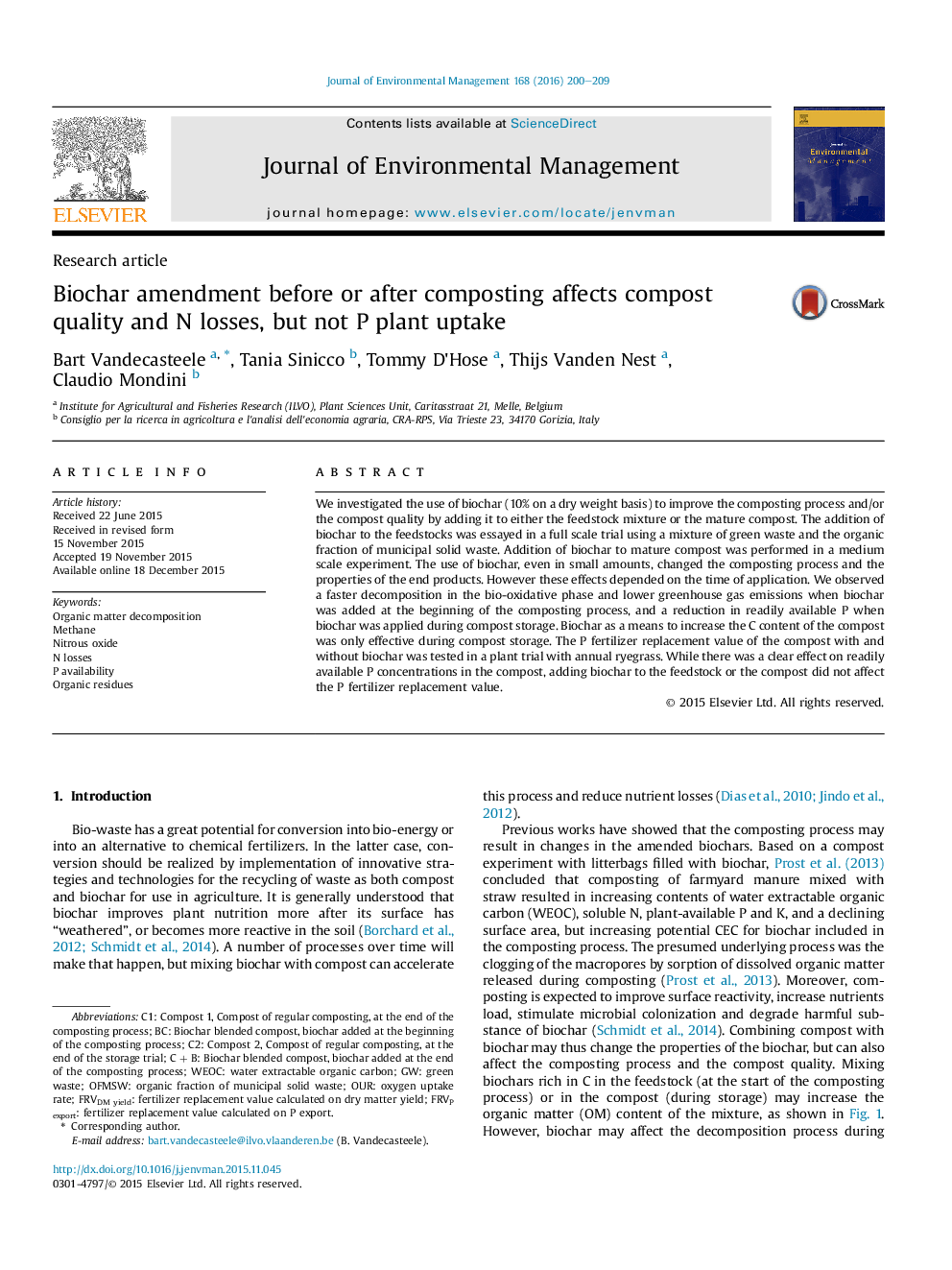| Article ID | Journal | Published Year | Pages | File Type |
|---|---|---|---|---|
| 1055559 | Journal of Environmental Management | 2016 | 10 Pages |
•Effects were different when biochar was added before or after composting.•Biochar added in the feedstock mixture ameliorates the composting process.•Adding biochar before composting reduced the GHG emissions.•Adding biochar before or after composting did not change the plant uptake of P.•P fertilizer replacement value of compost with or without biochar amendment was low.
We investigated the use of biochar (10% on a dry weight basis) to improve the composting process and/or the compost quality by adding it to either the feedstock mixture or the mature compost. The addition of biochar to the feedstocks was essayed in a full scale trial using a mixture of green waste and the organic fraction of municipal solid waste. Addition of biochar to mature compost was performed in a medium scale experiment. The use of biochar, even in small amounts, changed the composting process and the properties of the end products. However these effects depended on the time of application. We observed a faster decomposition in the bio-oxidative phase and lower greenhouse gas emissions when biochar was added at the beginning of the composting process, and a reduction in readily available P when biochar was applied during compost storage. Biochar as a means to increase the C content of the compost was only effective during compost storage. The P fertilizer replacement value of the compost with and without biochar was tested in a plant trial with annual ryegrass. While there was a clear effect on readily available P concentrations in the compost, adding biochar to the feedstock or the compost did not affect the P fertilizer replacement value.
Graphical abstractFigure optionsDownload full-size imageDownload as PowerPoint slide
